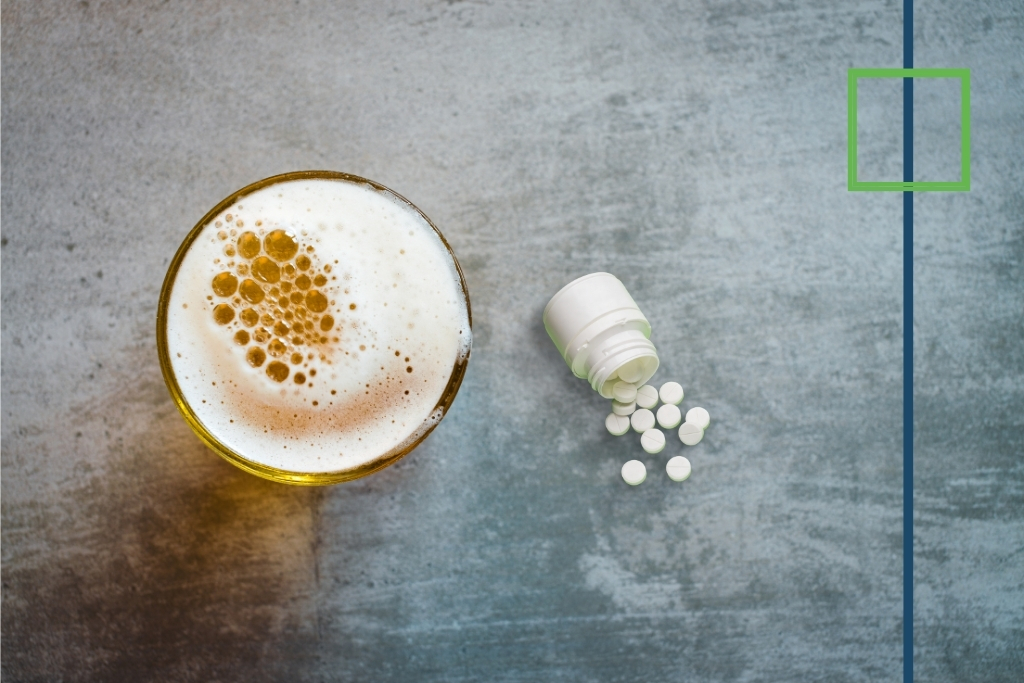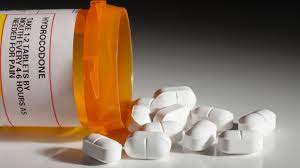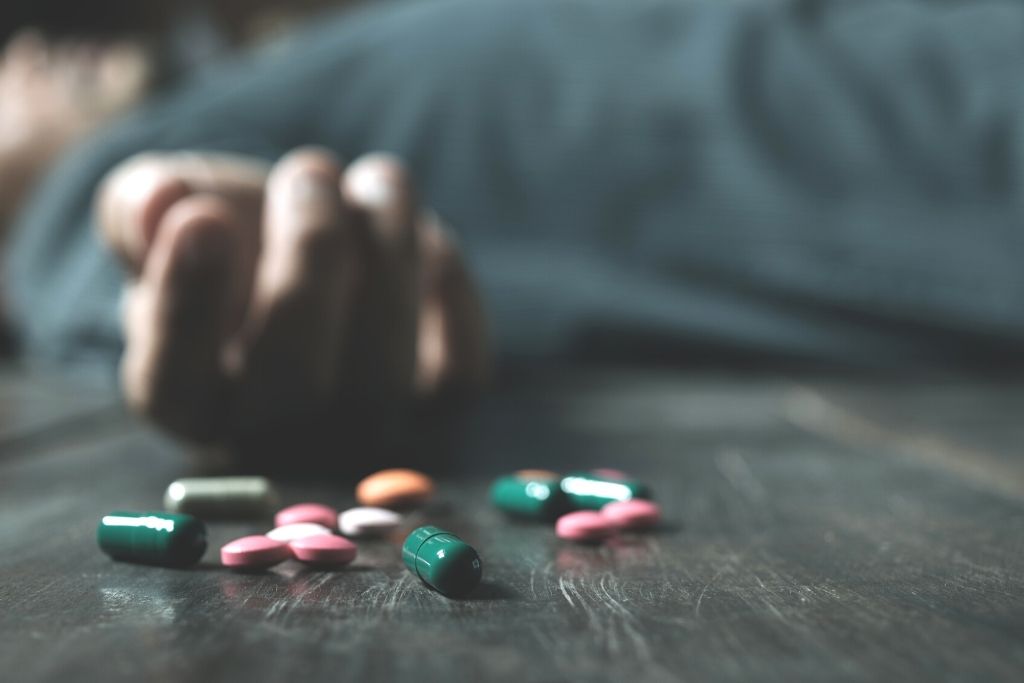What is Amitriptyline?
Amitriptyline is a medication most frequently used to treat anxiety and depression. Tricyclic antidepressants, such as amitriptyline, were among the first antidepressant drugs to be created. They are helpful for those with chronic pain since they function by adjusting the chemicals of the nervous system.
TCAs have largely been replaced as an antidepressant by selective serotonin reuptake inhibitors (SSRIs) and serotonin-norepinephrine reuptake inhibitors (SNRIs), both of which tend to have fewer side effects. Amitriptyline is nevertheless frequently given due to its impact on chronic pain and any depression or anxiousness caused by that condition. Typically, it would be best to avoid taking Amitriptyline and alcohol simultaneously to reduce the chance of side effects.
How is Amitriptyline Used?
Due to the availability of more advanced antidepressants with lesser side effects, Amitriptyline is primarily used to manage chronic pain. When it was first used as an antidepressant, doses tended to be larger, but side effects were noticeable. Amitriptyline often includes a lower daily dose (about 75–150 mg), which may be sufficient to aid pain without encountering the strongest side effects.
Amitriptyline is available in the following dosages: 10, 25, 50, 75, 100, and 150 mg. The drug is administered orally, either in a single large dose or numerous smaller ones throughout the day. Amitriptyline tends to make individuals sleepy, so if it’s only planned to be taken once daily, it’s best to take it at night.
Skip To:
- What is Amitriptyline?
- Amitriptyline Interactions with Alcohol
- Amitriptyline with Alcohol Side Effects
- Does Alcohol Affect Amitriptyline?
- Why Should You Not Drink Alcohol When Taking Amitriptyline?
- Amitriptyline Warnings Alcohol
- Amitriptyline and Alcohol Overdose
- Amitriptyline and Alcohol Death
- Amitriptyline and Alcoholism Treatment
Learn More:
Get Help. Get Better. Get Your Life Back.
Searching for Accredited Drug & Alcohol Rehab Centers Near You? Or Mental Health Support?
Even if you have failed previously, relapsed, or are in a difficult crisis, we stand ready to support you. Our trusted behavioral health specialists will not give up on you. Call us when you feel ready or want someone to speak to about therapy alternatives to change your life. Even if we cannot assist you, we will lead you wherever you can get support. There is no obligation. Call our hotline today.
FREE Addiction Hotline – Call 24/7Amitriptyline Interactions with Alcohol
Amitriptyline and alcohol interactions can be a dangerous combination due to the possibility of unpleasant hangovers, falls, and bruising, and the risk of driving while impaired.
Alcohol can make you sleepy and impair your judgment and concentration because it slows down brain cell communication. You might have these side effects if you take Amitriptyline by itself. When used together, they may result in excessive weariness and drowsiness, as well as passing out or blackouts. Alcohol consumption and amitriptyline use should be avoided if you plan to drive, operate machinery, or perform other tasks that call for attentiveness.
Doctors frequently advise against drinking while taking most antidepressants, including amitriptyline. This can be quite difficult for someone who needs alcohol to socialize or doesn’t want to be the only non-drinker at a gathering. To avoid health risks when mixing Amitriptyline and alcohol, it is best to get help from a medical professional.

20 mg Amitriptyline and Alcohol
Taking any amount of alcohol while under any medication may result in uncomfortable side effects. Because alcohol slows down brain cell communication, it might make you tired and affect your judgment and focus. Even if you take Amitriptyline by itself, there is still a chance for some adverse effects to appear. Combining Amitriptyline and alcohol may cause severe fatigue, drowsiness, fainting out, or blackouts.
10 mg Amitriptyline and Alcohol
Alcohol may produce fatigue and impair your judgment and focus since it slows down brain cell communication. You risk experiencing these negative effects if you take amitriptyline by itself. Amitriptyline, when taken with alcohol, may result in extreme exhaustion, sleepiness, fainting, or blackouts; whatever amount of alcohol is consumed while taking a prescription may have undesirable side effects.

Get Your Life Back
Find Hope & Recovery. Get Safe Comfortable Detox, Addiction Rehab & Mental Health Dual Diagnosis High-Quality Care at the We Level Up Treatment Centers Network.
Hotline (877) 378-4154Amitriptyline with Alcohol Side Effects
Can you drink alcohol with Amitriptyline? It’s generally not a good idea to consume alcohol while taking amitriptyline for several reasons. First, amitriptyline alcohol both have soothing effects on the body, making you sleepy and exhausted.
Amitriptyline users are generally encouraged not to handle any automobiles or heavy machines due to its effects on attentiveness. As with most drugs, you may suffer some adverse effects while using them. These are made even worse if you take the drug with alcohol; some negative effects can worsen.
Amitriptyline and alcohol side effects include:
- Sleepiness
- Dizziness
- Nausea
- Vomiting
- Confusion
- Physical weakness
- Excessive sweating
- Headache
- Hazy vision
- Constipation
- Mouth ache
- Changes in weight
When combined with alcohol, these side effects can become more severe and may have unexpected impacts on your coordination, alertness, and memory. This could make you more likely to trip, fall, or bump into things when drunk, increasing your risk of injury. Due to the combined effects of amitriptyline mixed with alcohol, you can also become drunk more quickly than usual. Drinking while taking amitriptyline may make the Amitriptyline side effects of alcohol impact you more strongly than usual, which could lead to serious problems.
Comfortable Facilities & Amenities
High-Quality Addiction & Mental Health Rehabilitation Treatment
Rehab Centers TourRenowned Addiction Centers. Serene Private Facilities. Inpatient rehab programs vary.
Addiction Helpline (877) 378-4154Proven recovery success experience, backed by a Team w/ History of:
15+
Years of Unified Experience
100s
5-Star Reviews Across Our Centers
10K
Recovery Success Stories Across Our Network
- Low Patient to Therapist Ratio
- Onsite Medical Detox Center
- Comprehensive Dual-Diagnosis Treatment
- Complimentary Family & Alumni Programs
- Coaching, Recovery & Personal Development Events

Does Alcohol Affect Amitriptyline?
Can I drink alcohol with Amitriptyline? Amitriptyline combined with alcohol can increase sleepiness and tiredness symptoms, causing users to feel overly sleepy and compromising their judgment. In extreme circumstances, using amitriptyline and drinking can even cause seizures.
Amitriptyline can cause drowsiness, dizziness, and blurred vision. Alcohol can increase the risk of side effects from Amitriptyline, such as drowsiness, dizziness, and blurred vision. If you take Amitriptyline and drink alcohol, be careful not to overdo it, or serious health problems may occur.
Why Should You Not Drink Alcohol When Taking Amitriptyline?
Amitriptyline, a tricyclic antidepressant, functions by increasing the amount of norepinephrine and serotonin available for chemical impulses between brain cells. Amitriptyline and other medications in this class shouldn’t be taken with alcohol because they impact your body’s nervous system and other organs. Alcohol and certain antidepressants together can have very negative health effects.
Even low dose Amitriptyline and alcohol shouldn’t be combined because they both have depressive effects. Alcohol is a depressant of the nervous system that can cause sleepiness, drowsiness, and even unconsciousness when taken in significant quantities.
World-class, Accredited, 5-Star Reviewed, Effective Addiction & Mental Health Programs. Complete Behavioral Health Inpatient Rehab, Detox plus Co-occuring Disorders Therapy.
CALL (877) 378-4154End the Addiction Pain. End the Emotional Rollercoaster. Get Your Life Back. Start Drug, Alcohol & Dual Diagnosis Mental Health Treatment Now. Get Free No-obligation Guidance by Substance Abuse Specialists Who Understand Addiction & Mental Health Recovery & Know How to Help.
Amitriptyline Warnings Alcohol
It’s essential to follow the directions when taking any prescription medication carefully. Most antidepressants, including amitriptyline, have specific instructions that state the medicine and alcohol should not be mixed. For certain persons who rely on alcohol for social interaction and dislike the concept of being the “one who doesn’t drink,” this rule might be particularly difficult. This warning is because combining amitriptyline & alcohol can be dangerous and increase your risk of an accident or blackout.
Experience Transformative Recovery at the We Level Up Treatment Center.
See our authentic success stories. Get inspired. Get the help you deserve.



Start a New Life
Begin with a free call to an addiction & behavioral health treatment advisor. Learn more about our dual-diagnosis programs. The We Level Up treatment center network delivers various recovery programs at each treatment facility. Call to learn more.
- Personalized Care
- Caring Accountable Staff
- Comfortable Amenities
- Licensed & Accredited
- Renowned w/ 5-Star Reviews
We’ll Call You
Amitriptyline and Alcohol Overdose
If someone takes too much amitriptyline, one possible side effect is overdose. High doses of the medication provide euphoric and sedative effects, making abuse of the substance common. People that misuse the medicine will increase the dosage to amplify the effects. Serious health issues brought on by an Amitriptyline overdose include heart attack, dangerously low blood pressure, and seizure. Depression of the central nervous system and even death are possible in difficult situations. If you suddenly quit the medication, Amitriptyline alcohol withdrawal symptoms may occur. So it is best to instead talk to a medical professional for help.
Chest pain, excessive tiredness, vomiting, muscle stiffness, a rapid heartbeat, slurred speech, trouble breathing, seizures, and unconsciousness are all symptoms of an overdose. Amitriptyline is more likely to cause an overdose when mixed with other drugs, especially alcohol. Although mixing them can result in severe sedation and respiratory depression, many Amitriptyline abusers do it anyway to heighten the high they feel.

Amitriptyline and Alcohol Death
Can you take amitriptyline with alcohol? When amitriptyline is abused, it can interact with other medications the person is taking. This can lead to dangerous complications. In extreme cases, an overdose of amitriptyline can be fatal.
A person’s health can deteriorate quickly after taking too much amitriptyline. They may experience a rush of euphoria followed by sedation and deep sleep. Their heart rate and blood pressure will decrease, and they may even experience seizures. If not treated, the person can die from this overdose.

Amitriptyline and Alcoholism Treatment
The first step in receiving treatment is acknowledging there is a problem. After deciding to quit using amitriptyline and alcohol together, the next step is to look for support and help.
In treatment programs, behavior change techniques are done through counseling. You will better understand your routines and the causes of alcohol and amitriptyline addiction. Having the support of your loved ones during counseling can prevent you from relapsing to your old habits.
If your withdrawal symptoms are severe, you might need to check into a trusted live-in treatment center like We Level Up NJ. There, during your recovery, your safety and well-being can be guaranteed.
Long-term rehabilitation from amitriptyline and alcohol addiction is difficult and requires time. With the appropriate assistance, this condition is attainable.
Inpatient drug rehabilitation provides a drug-free setting that is also isolated from potential distractions. While spending several weeks at a treatment center, you can participate in individual and group treatment. If you or a loved one is struggling with a drug or alcohol addiction, the addiction specialists at Level Up NJ are here to help.